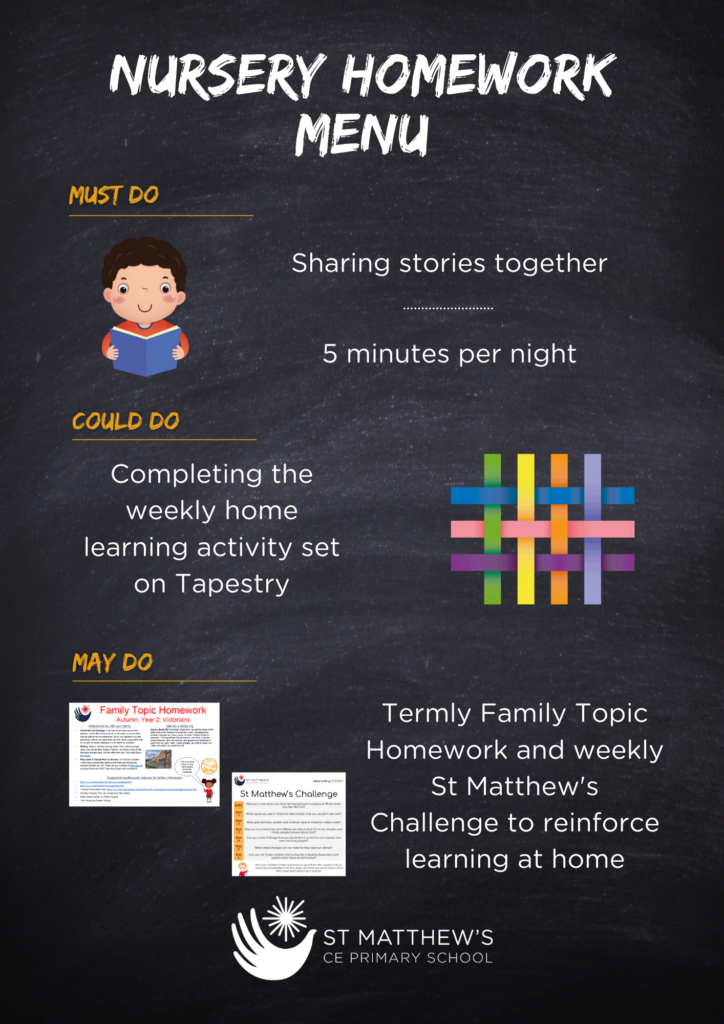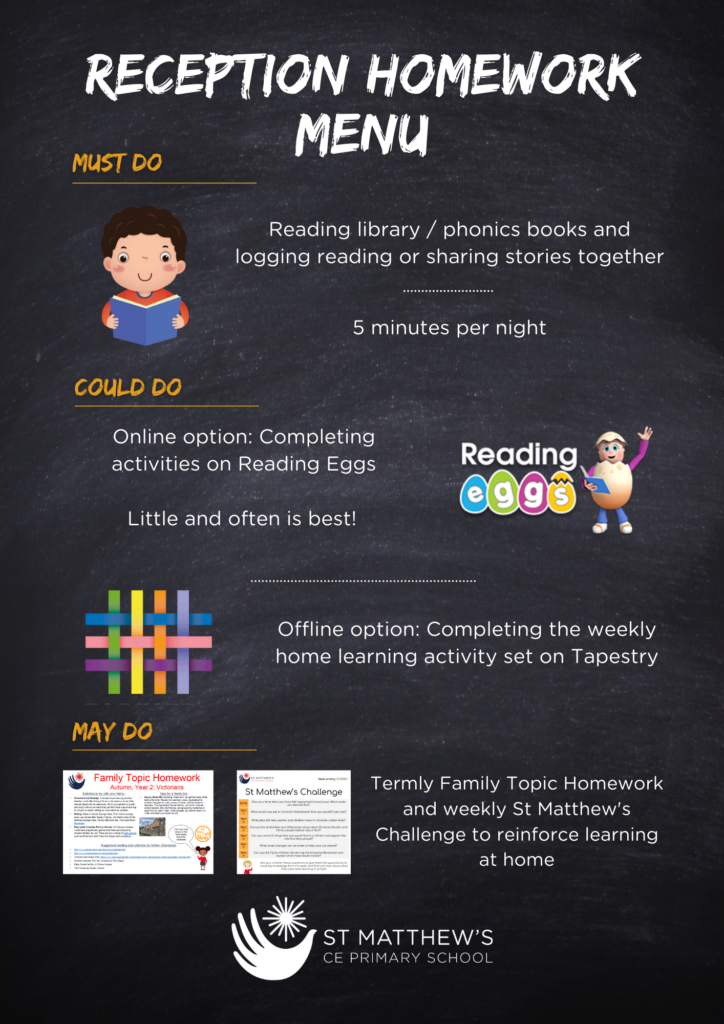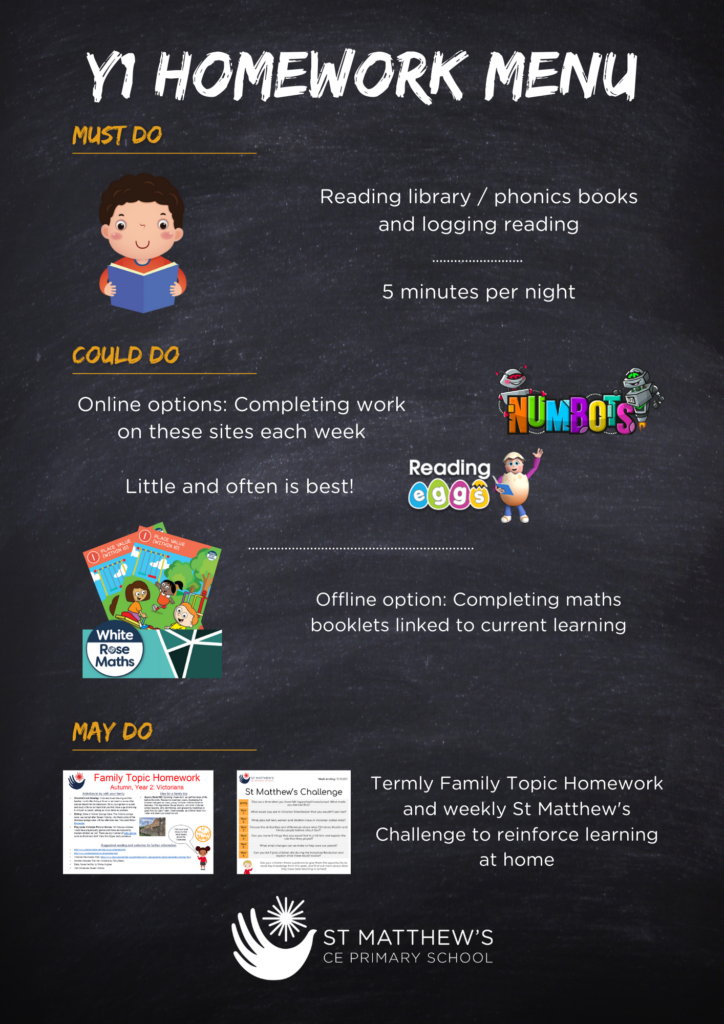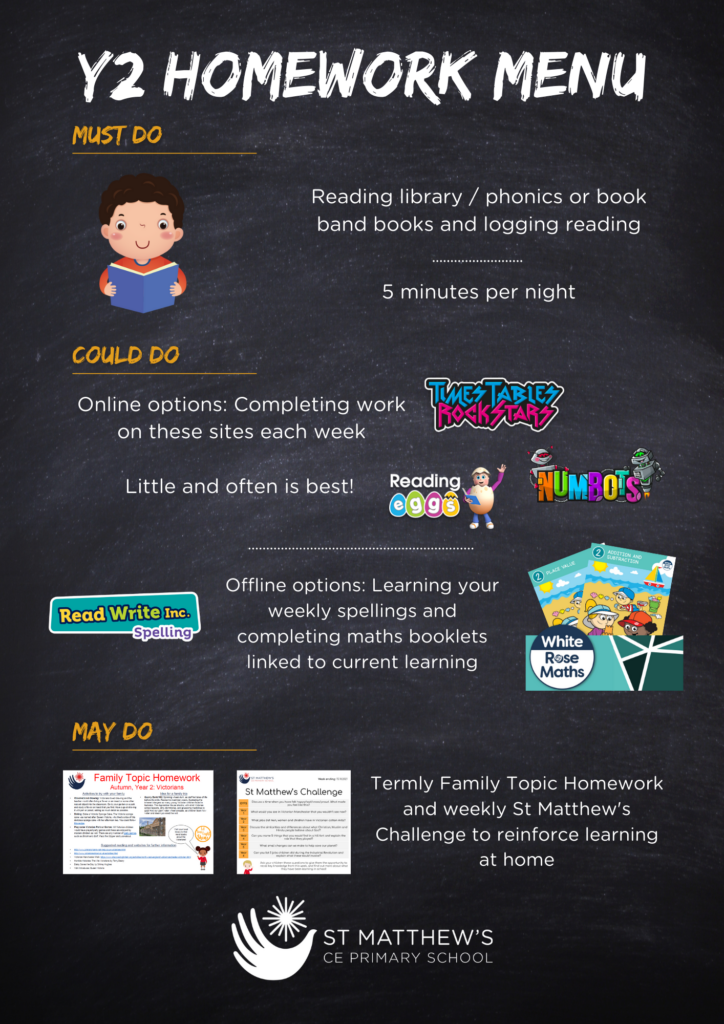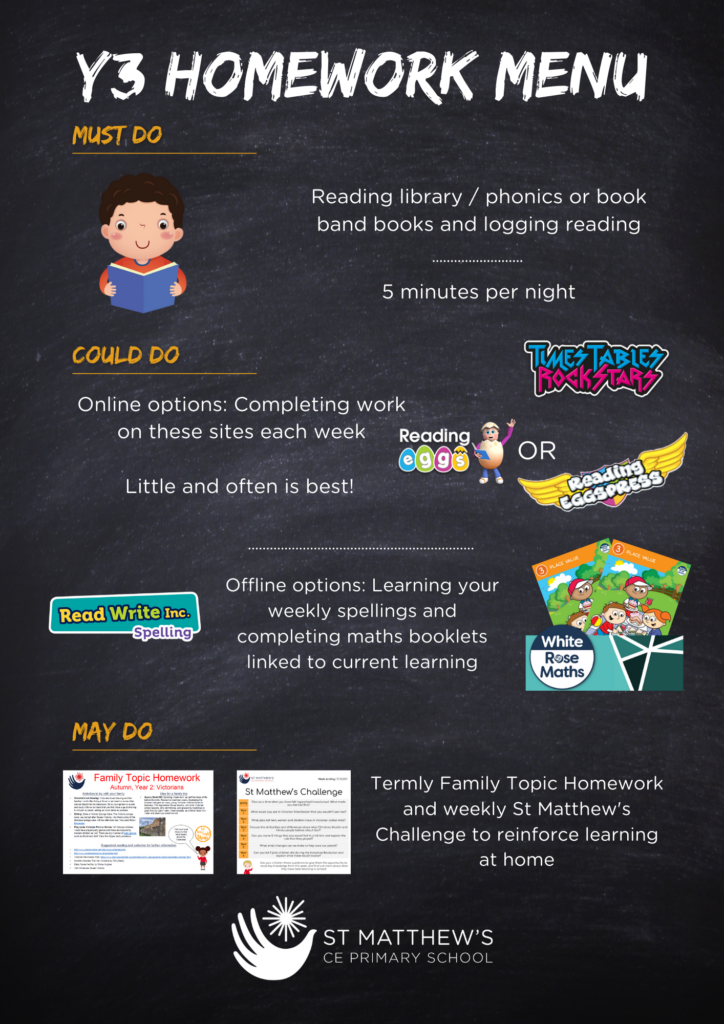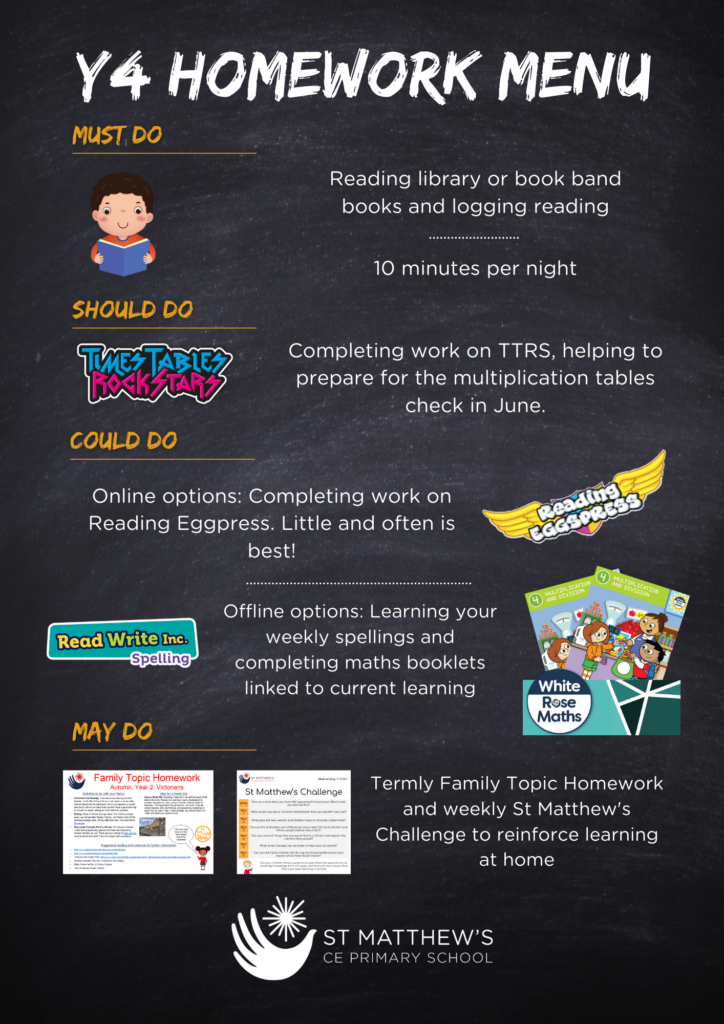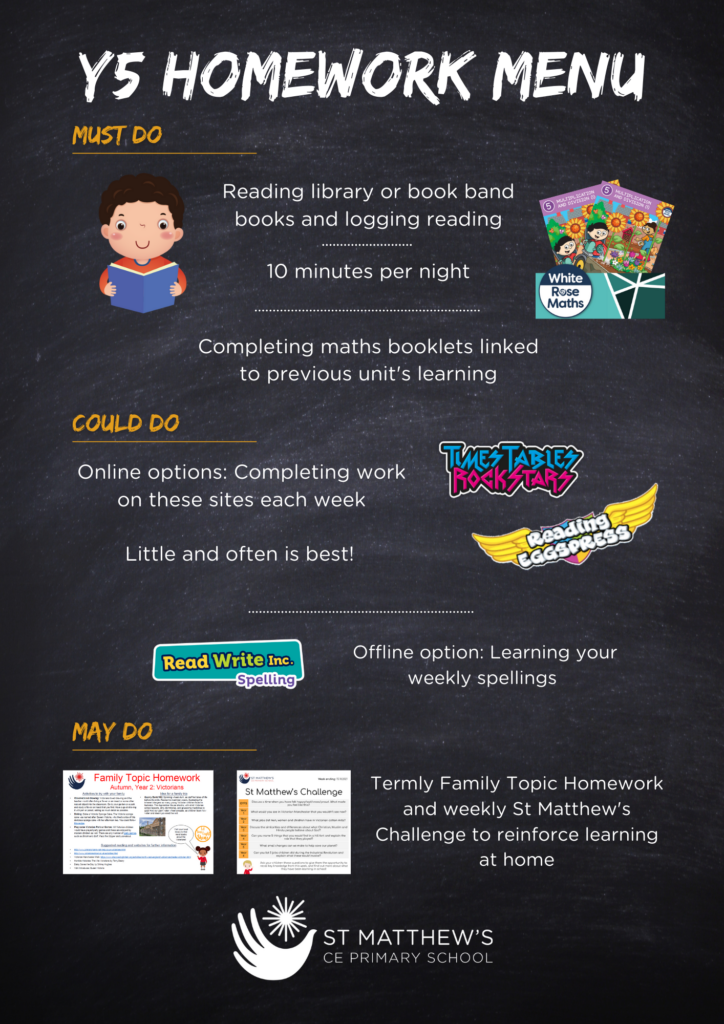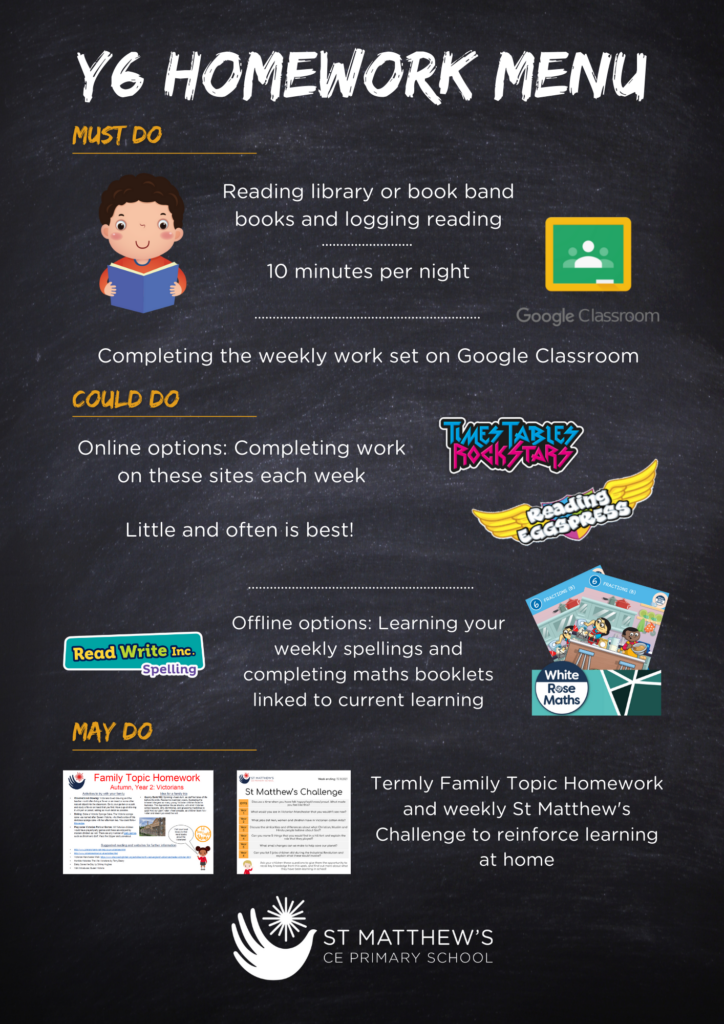In Spring 2022, we reviewed our homework policy, taking on board feedback about homework in general and the homework policy. The parent/carer feedback was very interesting and has provided us with some excellent insights into the positives of homework, but also the challenges.
Around a third of our families responded (thank you so much for your participation!) and this chart shows that the vast majority of families believe homework is important:
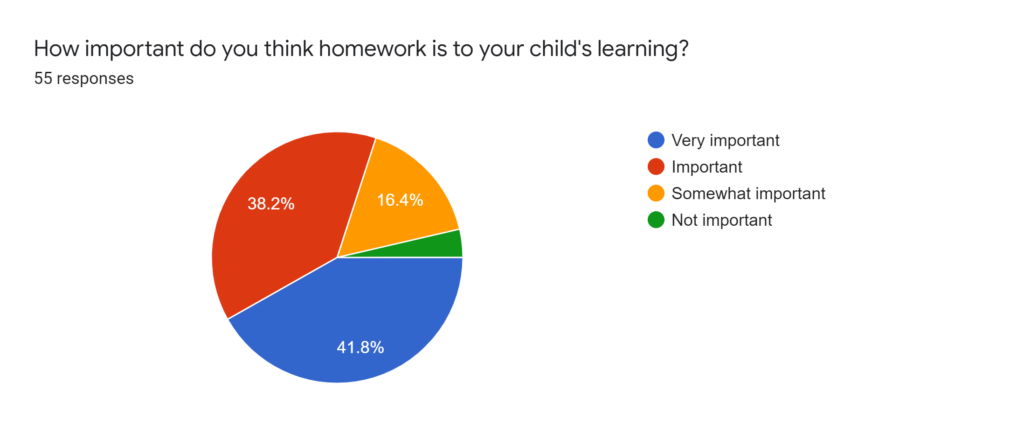
Most families believe that homework is important in developing independent learning skills and reinforcing work done in school. The biggest negative about homework (a view shared by 53% of respondents) was the fact that it can be a cause of friction and anxiety at home. 51% of respondents believe children have worked hard enough in school, and 49% of respondents shared that they don’t always have the time to support with homework.
In terms of the amount of homework, this shows that the amount of homework set has been, on average, in line with expectations. Out of those respondents who don’t feel the amount is about right, there is a slight preference for more homework rather than less homework.
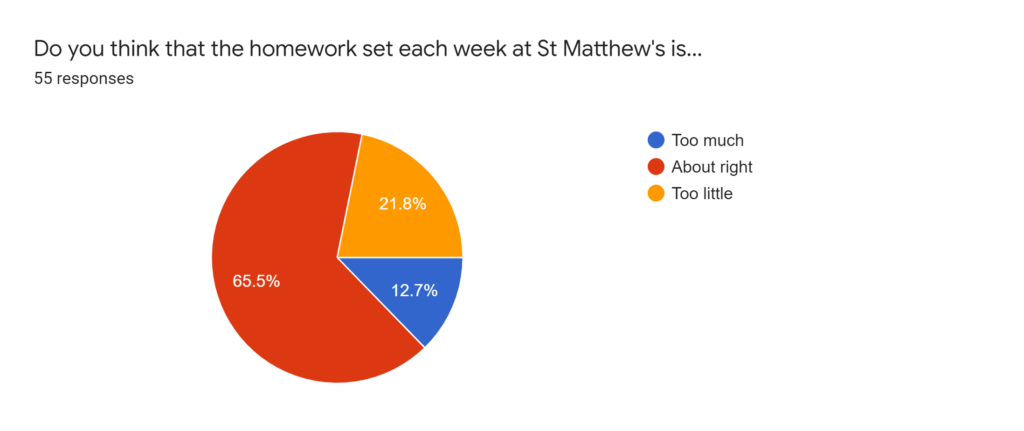
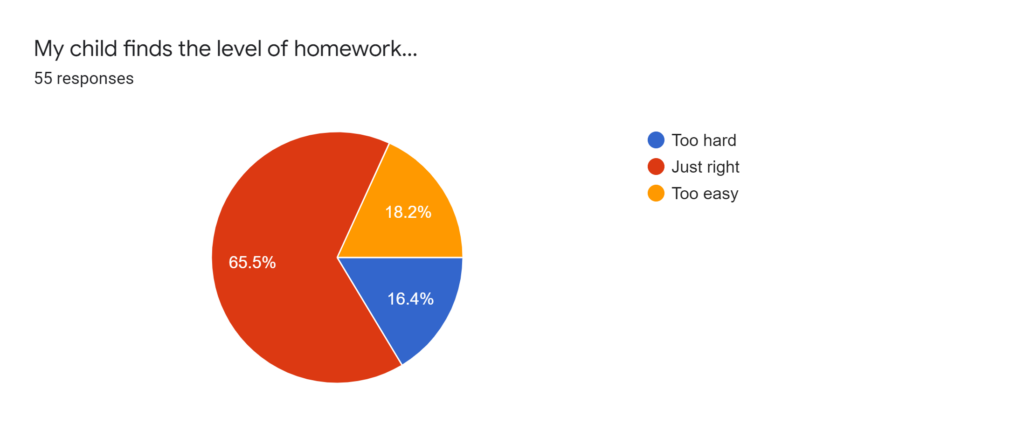
From the responses, it appears that the homework being set is, on average, at the right level. Setting the correct level of work for children to complete outside of school can be a challenge, which is why we provide websites, such as Numbots, Times Tables Rockstars and Reading Eggs, which following initial use, automatically provide the correct amount of challenge for children.
It appears that, from a parent/carer perspective, the homework diet trialled this year is largely having a positive impact on children’s learning which is excellent feedback.
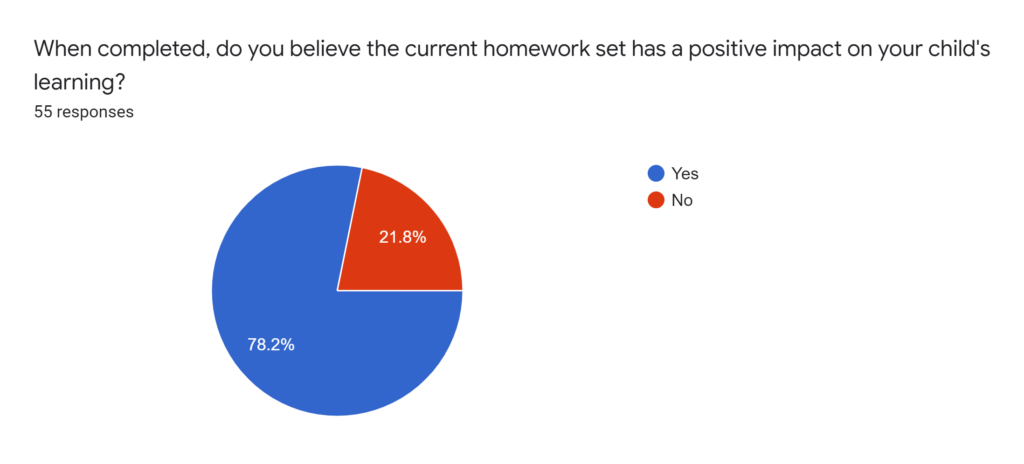
There were also 30 comments which provided further insight into the positives and challenges of homework in general, as well as our approach to homework. It was clear through these comments that in general, families view homework as important and welcome it, but many also struggle to find time to complete this due to commitments outside of school or because it can cause stress and anxiety for all involved.
We understand this conflict, which is why we made some changes to our policy.
At St Matthew’s we want to get the balance right. We want to provide homework that extends learning opportunities and teaches independent learning skills, but we don’t want this to be a cause of stress or anxiety. We also recognise the time children put into other forms of learning outside of school, such as dance lessons, football coaching, boxing or Beavers/Girl Guides etc. All of these clubs are also important, even more so now since the pandemic with the increased need for opportunities for socialisation and fun!
Summary of changes
| You said… | We did… |
| On average, the amount of homework is just right, with slight preference for more rather than less. We would like more paper-based homework / homework in which children and parents can sit down and look at together. | We have kept all homework options that we have previously offered but we have introduced Maths Booklets. These booklets will be sent home with the children when they have completed the unit of work in school. Knowing they have just finished this unit of work should give children the confidence to work through this booklet independently or with some adult support. The answers are in the back and children should mark these and make any corrections before returning them to school on the given date, which will usually be 2-3 weeks after they are sent out. |
| Homework requirements are not explained fully and guidance for using the apps can be vague | Year group homework menus will be shared that summarise the options available for children in each year group. Further information and guidance will be developed and shared to support families further in accessing and using the available apps / homework options. |
| We know that homework is important, but can find it difficult to find the time to complete it. Homework can be a source of stress and anxiety. Children/families have a preference for one app/homework over others (but preferences were all different). | The majority of homework will be optional. Homework in primary schools is not a statutory requirement. However, as many agree, there are benefits to it. Therefore, it will still be provided, and actively encouraged, but for the majority of homework, there will be no negative consequence given for non-completion. We will provide different levels of homework, which acts to inform parents/carers of which homework to prioritise. All homework given will fall under ‘must do’, ‘should do’, ‘could do’ or ‘may do’. Should families have a limited amount of time for homework, this should guide you as to which homework to complete first. In all year groups, sharing stories or reading daily is a ‘must do’ because we value the importance of daily reading and there is evidence this can have a big impact on a child’s progress and development. We have put in minimal timings, so feel free to read more wherever possible! For children in Year 5, the completion of Maths Booklets will be a ‘must do’ and in Year 6, the weekly homework set on Google Classroom will be a ‘must do’. This is to help prepare children for their next stage of learning and the responsibilities this brings to manage their work independently. Certain year groups may highlight a particular homework above others e.g. Times Tables Rockstars in Year 4 (as this is when children should know all 12 times tables by) and teachers may use parents evening to highlight that a particular homework may benefit your child over other options. We hope this approach empowers families to choose the correct level, type and amount of homework that benefits their child whilst not adding to the stress, worry and workload of life outside of school. |
Homework Menus
